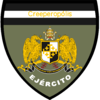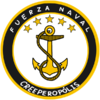Red Terror (Creeperopolis)
| Terror Rojo | |
|---|---|
 | |
| Location | Miguelist controlled territory in Creeperopolis |
| Date | January 2, 1933-September 30, 1949 (16 years, 8 months and 4 weeks) |
| Target | Romerists, Conservatives, Rightists, Creeperian Catholics, Creeperian Catholic Church, Salvadorans, Fascists, Monarchists, Homosexuals, and Deltinian Nationalists. |
Attack type | Genocide, Ethnocide, Ethnic Cleansing, Cultural Cleansing, Mass Murder, Mass Rape, Looting, Pillaging, Forced Labor |
| Deaths | 9-11 million |
| Perpetrators | National Council for Peace and Order, State of Granada, Senvarian Liberation Front, Atheist Red Army |
| Motive | Anti-Catholicism, Anti-Salvadoran Sentiment, Anti-Deltinian Sentiment, Homophobia, Anti-Islamism |
| Litigation | San Salvador Trials, La'Libertad Trials, Adolfosburg Trials, Salvador Trials, White Terror (extrajudicial), Black Terror (extrajudicial) |
The Red Terror (Creeperian: Terror Rojo) is a name officially given by the Creeperian government to several acts of violence and atrocities committed by the National Council for Peace and Order during the Creeperian Civil War. It is estimated that anywhere around 9 to 11 million were killed by the forces of the National Council for Peace and Order from 1933-1949.
Contents
Background
The Creeperian Civil War began on January 2, 1933, with a skirmish in the city of San Salvador del Norte between soldiers loyal to two opposing Emperors: Romero I and Miguel VII. Miguel VII wanted to seize power for himself and depose his brother Romero I. He also wanted to rid the nation of the Parliament and ban all political parties which he believed stood in the way of Creeperopolis' prosperity: the National Conservative Party, the Catholic Royalist Party, the Salvadoran Nationalist Party, and the Creeperian Pro-Fatherland Front.
Miguel VII and several of his military advisors, most notably Juan Salinas Figueroa and Miguel Salinas Ortega, agreed that violence against the groups the National Council for Peace and Order saw as standing in the way of Creeperopolis' prosperity must be eliminated. These groups included people aligned with the Catholic Imperial Restoration Council (known as Romerists), Conservatives, lay Creeperian Catholics, clergy of the Creeperian Catholic Church, ethnic Salvadorans, Creeperian Fascists (particularly members of the Creeperian Pro-Fatherland Front and its paramilitary organization known as the Camisas Negras), Creeperian Monarchists, Homosexuals, and Deltinian Nationalists.
Nothing which belongs to the right will survive the terror of the Reds.
De-Catholization
De-Catholization, also known as the Creeperian Genocide, was the genocide of Creeperian Catholics, Romerists, and Salvadorans. Between 1933 and 1949 across Miguelist controlled territories of Creeperopolis, the National Council for Peace and Order systematically murdered around 9 to 11 million Creeperian Catholics, Romerists, and Salvadorans, along with any Miguelist dissidents or deserters. The murders were carried out in pogroms, mass executions, mass shootings, and by a policy of extermination through labor in quarries, farmland, and mines. Decatolicismo was used as justification for the genocide.
Massacres, looting, and pillaging were also commonly committed by the Miguelists such as the 1944 La'Libertad Massacre, the 1947 San Salvador Massacre, and the 1948 Burning of North San Salvador.
The genocide was pushed for by Miguelist Emperors Miguel VII and Marcos I and was carried out by the Creeperian Armed Forces loyal to the Miguelists, with assistance from the separatist Senvarian Liberation Front. Groups such as the Crusaders of King Alfonso, also known as the Cristeros, were created to fight against the Miguelists and their genocide. The Romerist Emperor, Romero I, was killed during the Siege of San Salvador and is considered the "greatest Romerist loss" of De-Catholization. He would be canonized as a saint by Pope Juan Pablo II in 1983 as Creeperopolis' patron saint.
Denial of the genocide is illegal in Creeperopolis and is punishable by death.
Death Toll
| Part of a series on |
| Miguelism |
|---|
 |
| Categories: |
Civilians
Clergy
Military
Trials
San Salvador
La'Libertad
Adolfosburg
Salvador
See Also
- White Terror (Creeperopolis)
- Creeperian Civil War
- National Council for Peace and Order
- De-Catholization
- Chemical Weapons in the Creeperian Civil War







